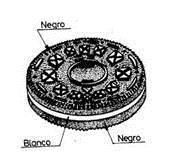The Spanish Supreme Court considers keywords and cookies
The Spanish Supreme Court has issued two decisions in cases concerning controversial subjects for Spanish trade mark owners: trade marks used as keywords in internet search engines and the use of a trade mark in a different form from which it was registered.
For the uninitiated, Google offers advertisers the ability to have sponsored links displayed when certain search terms ("keywords") are specified by the user. These sponsored links are normally distinguished from standard search results by an "advertisement" indication. In that context, imagine that a company selects keywords corresponding to a competitor's trade mark for advertising their sponsored link. Can that company be held responsible for trade mark infringement?
Fortunately, the CJEU has already answered that question in the well-known Google France and Interflora v. Marks & Spencer cases. Several years later, the Spanish Supreme Court has now finally had the opportunity to develop that approach in Spain.
The decision did not disappoint observers, since the Supreme Court has now set out specific criteria in order to determine trade mark infringement.
In short, the Court has reflected the CJEU judgments, allowing the use of registered trade marks as keywords to display sponsored links as long as:
- the use of the trade mark does not erode the mark’s function of indicating origin and/or its economic function; and
- there is no likelihood of confusion between the marks.
| Registered Trade mark declared expired | Other Registered Trade mark |

|

|
| Source: Spanish Patent and Trademark Office database | Source: EUIPO database |
The Court also clarified the criteria it would consider in determining infringement, including the distinctiveness of the registered mark and the clarity with which a user can distinguish between both companies. In that sense, use of advertising text that did not include any word referring to the owner's trade mark would be a sign indicating lawful use.
Separately, the Supreme Court has dismissed trade mark infringement actions commenced by the owner of the famous cookie, Oreo. In this judgment, the Court revoked Oreo's Spanish trade mark for non-use due to the mark not being used in the form in which it had been registered. The registered mark consisted of a picture of the cookie showing its decoration but without including the word "Oreo". That differed from the cookie as sold, which does contain the word "Oreo". In this regard, the Court held that the distinctiveness of the registered trade mark arose from the embossed design, so the inclusion of a name as distinctive as "Oreo" demonstrated that the company was not making genuine use of the registered trade mark.
As a consequence of this judgment trade mark owners may need to review their trade mark portfolio to analyse "gaps" between their marks as actually in the market; assess those implications; and decide whether new filing strategies are necessary. In the meantime, we await future decisions on similar matters to confirm whether this approach will be consolidated.
This article is part of our BrandWrites May 2016 edition.


